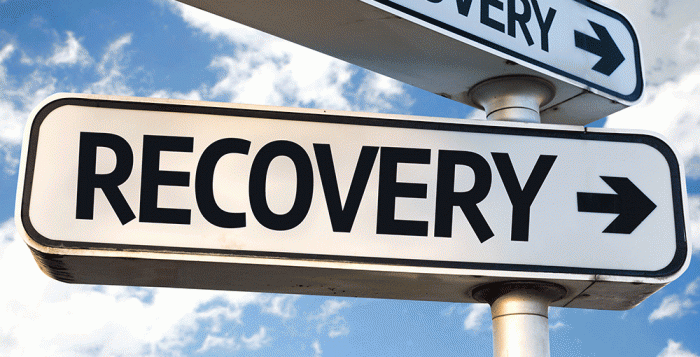Governor Shapiro and Pennsylvania’s Department of Drug and Alcohol Programs have announced an $18 million funding initiative to assist practitioners in the substance use disorder (SUD) treatment, prevention, case management, and recovery support services workforce. The SUD student loan repayment program aims to address workforce shortages by providing loan repayment opportunities to retain professionals in the field. This initiative, funded by the Opioid Settlement Fund and Pennsylvania’s Medical Marijuana Program Fund, supports practitioners, including physicians, nurses, counselors, and case managers. Applications must be submitted by March 1, 2024, through the online portal. Practitioners are eligible for up to $75,000 for full-time practice or $37,500 for half-time practice. The program prioritizes those in rural areas with SUD workforce shortages and counties with underserved minority populations. For more information and application details, visit the DDAP Funding Opportunities page. Questions can be sent electronically.
DDAP
DDAP and DCED Announce Funding for Recovery Houses
The Pennsylvania Department of Drug and Alcohol Programs (DDAP) and the Department of Community & Economic Development (DCED) have announced a nearly $300,000 grant opportunity for licensed recovery houses. The grants, capped at $50,000 each, aim to facilitate physical upgrades to ensure compliance with federal, state, and local laws, including the Americans with Disabilities Act of 1990. Eligible recovery house facilities can apply for health and safety enhancements, covering aspects such as demolition, rehabilitation, and environmental remediation. The application period will be open until funds are exhausted. For more details, including the application form, a comprehensive understanding of the competitive grant process, and federal application requirements, visit DDAP’s website.
DDAP Releases Compulsive and Problem Gambling Annual Report for 2023

The Pennsylvania Compulsive and Problem Gambling Annual Report for 2022/23 outlines the impact of programs funded by the Compulsive and Problem Gambling Treatment Fund. According to the report, around $8.3 million was transferred to support crisis counseling, awareness programs, and treatment services. The funds were distributed among Single County Authorities to conduct needs assessments and prevention programs. Additionally, the gambling treatment providers received direct support from the funds. Outpatient treatment providers spent $469,145 in 2022/23, focusing on monitoring demographics such as age, race, ethnicity, income, and preferred gambling methods. The Pennsylvania Gambling Helpline received 2,834 calls, indicating an increase from the previous year, with financial hardship being a common issue.
For a comprehensive overview, including detailed statistics on treatment admissions, demographics, and gambling methods, refer to the full report.
New DDAP Training Management System to Launch in January; Current System to Go Offline in December
The Pennsylvania Department of Drug and Alcohol Programs (DDAP) will launch a new Training Management System (TMS) in January 2024. To facilitate the transition, the current TMS and DDAP courses in TrainPA will be frozen at 3:00 pm Thursday, December 7, until the system’s launch on January 4, 2024. DDAP emphasizes the importance of verifying matching email addresses in both systems to mitigate potential record loss during the migration process. Users are strongly encouraged to conclude any ongoing TrainPA trainings and finalize pending course evaluations within the current TMS before the freeze period. For further assistance, users may contact the DDAP Training Section via email.
State Licensed 312 Recovery Houses, Far Short of Its Goal: RCPA Member Gaudenzia Quoted
More Than 300 Recovery Houses Now Licensed In Pennsylvania
The Pennsylvania Department of Drug and Alcohol Programs (DDAP) announced today that 312 recovery houses are now licensed throughout the commonwealth.
Since the licensure program began, DDAP has provided hands-on technical assistance to recovery house owners and continues to work individually with applicants to ensure accurate submissions when applying. DDAP developed and now offers a new provider workshop that has helped to increase accuracy of applications, which further streamlines and expedites the licensure process.
The purpose of DDAP’s recovery house licensure program is to help empower sustained recovery for individuals with substance use disorder by ensuring a network of safe drug and alcohol recovery houses across Pennsylvania.
A listing of licensed recovery houses as well as information regarding the licensing application process can be found on the DDAP website.
Shapiro Administration Highlights “One-Stop-Shop” Services For SUD Treatment, Recovery In Luzerne County: RCPA Member Children’s Services Center Referenced
$19M Loan Forgiveness Not Enough to Rebuild Recovery Workforce: RCPA SUD Treatment Services Director Jason Snyder Quoted

Save the Date: DDAP to Host 2023 Emerging Drug Trend Symposium

The Pennsylvania Department of Drug and Alcohol Programs (DDAP) will host the 2023 Emerging Drug Trend Symposium from 8:30 am – 4:30 pm on Thursday, November 9, at the Penn Harris Hotel in Camp Hill, PA. The symposium will provide attendees with valuable insights into three key areas: the latest trends in drug use within Pennsylvania, shifts in overdose patterns with a particular focus on increasing rates of overdose deaths in communities of color, and the exploration of best practices and innovative strategies to effectively respond to these emerging drug trends. Registration details and an agenda will be available soon.
DDAP Releases Results From Workforce Climate Survey
The Pennsylvania Department of Drug and Alcohol Programs (DDAP) recently conducted a comprehensive survey and listening session to assess the state’s substance use disorder (SUD) workforce. The Workforce Climate Survey results reveal a substantial workforce shortage, with 84% of the nearly 500 respondents citing it as a significant problem. The vacancy rate for SUD positions averaged 18%, with notable variations based on organization size and location. Larger, well-established non-profit organizations in metropolitan areas reported higher vacancy rates, and critical positions, such as counselors, nurses, entry-level professionals, and peer specialists, were particularly challenging to fill. Recruitment and retention issues were attributed to limited applicant pools and difficulties in offering competitive compensation.
The survey participants offered recommendations for both short and long-term solutions. These recommendations included increasing reimbursement rates, reducing education and experience requirements, alleviating paperwork burdens, and expanding student loan forgiveness and tuition reimbursement programs. In response to these findings, DDAP plans to use the survey data to inform its state plan, regulatory reform, and the allocation of opioid settlement funding. The department’s future efforts will focus on increasing the supply of addiction professionals, leveraging technology, addressing workforce distribution across the state, and enhancing workforce resilience to support Pennsylvania’s SUD workforce better and mitigate the ongoing overdose crisis.














